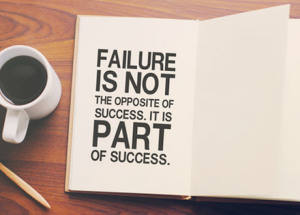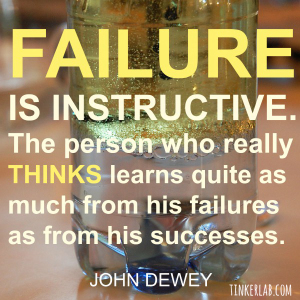The post If not a Business Plan, then what? appeared first on Conor Foley.
]]>“That depends a good deal on where you want to get to.”
“I don’t much care where –”
“Then it doesn’t matter which way you go.” (Lewis Carroll, Alice in Wonderland)
Conventional wisdom argues that every company, whether that be a start-up or a mature business, should have a Business Plan, unless, of course, like Lewis Carroll’s character, you don’t much care where you want the business to get to.
An alternative view is emerging, nicely summed up in this article on Inc.com, which claims that the ‘secret to a great business plan is not to write one.’ The author, Geoffrey James, gives 3 reasons for not writing a business plan:
1. Trying to forecast 3 years into the future, let alone 5 years, for a start-up, and even for mature businesses, is a waste of time. Everything is changing so quickly that assumptions made today will be redundant in 12 months time.
2. Nobody has time to read a formal document.
3. Potential investors would view the time spent on writing a Business Plan as having a wrong sense of priority.
Instead, the author highlights what could be used as a replacement for a Business Plan by referencing some eminent experts in the field.
Guy Kawasaki would prefer to see a 10 slide, 20 minute presentation built around a prototype or product demonstration.
Henry Wong (founder of CNET, among others) recommends a similarly minimalist approach that hits five key points: 1) team, 2) market, 3) technology, 4) customers, and 5) special connections (people you know who can help).
Author and entrepreneur Chris Lipp says your pitch must communicate only four simple points: 1) problem, 2) solution, 3) market, and 4) business.
Stanford professor Eesley says that a successful pitch today can even be a “one pager” and recommends that the time is better spent doing something useful: such as making your idea work in the real world.
Personally, I believe every company should have a Business Plan, but critically, one that is ‘fit for purpose’. It needs to a living, breathing document that communicates the strategy to all stakeholders, especially employees and shareholders, and it must be used to measure the performance against the targets set. How else can you assess performance if you’ve no plan?!
Finally, there is one other approach that could be considered, also taken from Lewis Carroll’s Alice in Wonderland:
“Begin at the beginning,” the King said, very gravely, “and go on till you come to the end: then stop.”
Who needs The Lean Startup with that kind of advice?!
The post If not a Business Plan, then what? appeared first on Conor Foley.
]]>The post Failure is not as painful as you expect, according to Scientists appeared first on Conor Foley.
]]>However, there is good news for anyone trying to decide whether they should take the plunge or not. According to Jessica Stillman in this article on Inc.com, new research shows that people handle failure and embarrassment far better than they think they would.
Imagined failure is way worse than the real-life kind.
To come to this conclusion, a team of Dutch researchers told study subjects they were going to complete a series of tests in pairs, informing them that if they scored above a certain level, each pair would earn rewards. Half of the participants then predicted how bad they’d feel if they failed. The other half actually took the tests and, whatever their actual performance, were told that they were personally responsible for their team’s failure to earn the reward. How bad did they really feel, the researchers then asked them.
How good were the participants at guessing how bad failure would make them feel? In short, pretty terrible. Imagined failure apparently feels way worse than real-life failure.
“Forecasters overestimated how much guilt and shame they thought they would experience (as compared with the actual emotions reported by the experiencers)–this is a classic example of the intensity bias,” according to the British Psychological Society (BPS). What’s the intensity bias? “A recurring finding in psychology is that people tend to overestimate the strength of their future emotions,” explains BPS.
Failure might hurt a lot less than you think it will, but it still hurts!
Conor Foley
The post Failure is not as painful as you expect, according to Scientists appeared first on Conor Foley.
]]>The post The Key to Becoming Successful at Anything appeared first on Conor Foley.
]]>Before the article downloaded I asked myself what I thought it could be. Cynically, it brought back memories of a joke that used to do the rounds when I was in the derivatives markets:
Q: How do you make a small fortune trading Futures?
A: You start with a large fortune.
So, assuming the answer wasn’t going to be as churlish as having a rich daddy I asked myself what answer I’d give if asked the question. Personally, the characteristic I always observed in successful people was their ability to ‘get things done’. That might sound pretty intuitive but when contrasted against people who always found an excuse for not doing something, usually in the form of ‘We need to do a lot more research before we do this’, I’d always pick the guy who does it over the guy who spends too much time thinking about it. Don’t take my word for it – read the first 3 chapters of The Lean Startup.
But no, the answer was not ‘Just Do It’, although it’s not a million miles away from that either. According to Justin Bariso, Founder, Insight, the key to becoming successful at anything is ‘creating habits’. (Good habits, presumably!)
And the reason why habits are vital for success is because habits turn into routine. And routine increases efficiency and makes it easier to keep up with those difficult or undesirable tasks. Makes sense, although the article probably should have gone on to explain how someone creates habits. It’s not as easy as it sounds.
Bariso ends with a note of caution: It takes significantly longer to break free of a habit than it does to build a new one. I wouldn’t be so sure about that.
You can read the full Inc.com article here.
Conor Foley
The post The Key to Becoming Successful at Anything appeared first on Conor Foley.
]]>The post What Personality Trait is Shared by Creative Geniuses? appeared first on Conor Foley.
]]>Creative Researchers carried out a practical experiment in the US in the 1960’s in which they put a group of highly creative people, including author Truman Capote, in a house for a period of time and observed their behaviour.
The results of the research highlighted one particular trait of creative geniuses and it isn’t your typical ‘high IQ’ result.
“The common traits that people across all creative fields seemed to have in common were an openness to one’s inner life; a preference for complexity and ambiguity; an unusually high tolerance for disorder and disarray; the ability to extract order from chaos; independence; unconventionality; and a willingness to take risks,” write Gregoire and Kaufman, authors of a new book entitled ‘Wired to Create: Unravelling the Mysteries of the Creative Mind’.
Put simply, what differentiates the Creative Geniuses from the rest of us is openness to complexity. Creative-minded people openly and boldly confront themselves and the world around them, and they appear to find an unusual synthesis between healthy and ‘pathological’ behaviours.
As Jessica Stillman highlights in this Inc.com article on the subject: Nothing is stopping you from nudging yourself in the direction of greater openness if you’re looking to boost your creativity. Why not try following the simple but powerful advice of WayUp CEO Liz Wessel and just “say yes” more to get started? All you need to do is, whenever someone proposes as activity or idea, simply default to saying yes unless you can think of a damn good reason not to.
Drink anyone?
Conor Foley
The post What Personality Trait is Shared by Creative Geniuses? appeared first on Conor Foley.
]]>The post What type of person is most apt to become an Entrepreneur? appeared first on Conor Foley.
]]>Personally, I believe graduates would be much better off getting at least 5 years experience in a corporate environment where they can make all the mistakes they like at someone else’s expense. Evenings and weekends can be used to conduct market research for a new idea.
We’ve all been bored with answers to the question “Are entrepreneurs born or made?” And, we’ve all probably sat through tedious responses from ‘experts’ which are based on small samples and very little scientific research.
But is there a set of personality traits or a magic formula that produces entrepreneurs, or what type of person is most likely to become an entrepreneur?
It turns out that entrepreneurship is the ultimate white privilege, as the research from this article points out. In fact, the most commonly shared trait amongst entrepreneurs is access to money and that while entrepreneurs do have an enviable appetite for risk, it’s usually that access to money which allows them to take those risks.
In other words, it’s easier to be creative and take risks when you know you have a safety net. As data from the Global Entrepreneurship Monitor shows, more than 80% of funding for new businesses comes from personal savings and friends and family.
While resilience is undoubtedly a necessary characteristic for entrepreneurial success, with many notable entrepreneurs having experienced failure with previous endeavours, it appears, after all, that entrepreneurs don’t have a special gene for risk – they just come from families with money.
The post What type of person is most apt to become an Entrepreneur? appeared first on Conor Foley.
]]>

